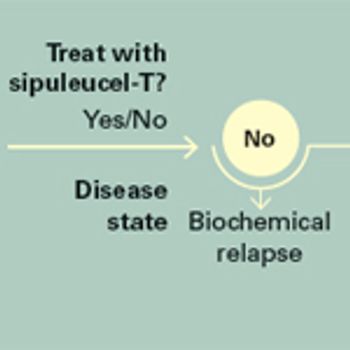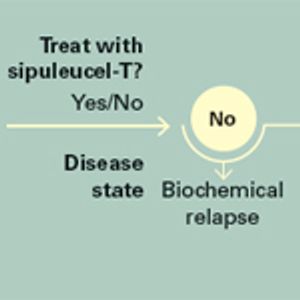
Susan F. Slovin, MD, PhD, spoke about how new approaches can support clinical practice guidelines and physician intuition in treating patients with prostate cancer.

Your AI-Trained Oncology Knowledge Connection!


Susan F. Slovin, MD, PhD, spoke about how new approaches can support clinical practice guidelines and physician intuition in treating patients with prostate cancer.

Multiple immunotherapy platforms have been investigated for prostate cancer, but sipuleucel-T still remains the sole approved autologous cellular immune product that can be used in men with asymptomatic or minimally symptomatic metastatic castration-resistant prostate cancer.

Ahead of the 2015 ASCO Annual Meeting, we are discussing the role of immunotherapy in genitourinary cancers with Susan F. Slovin, MD, PhD.

We are seeing a new era in drug development with the identification of novel intra- and extracellular targets to which therapies are being directed. Perhaps more exciting is learning how to optimize standard therapies in combination with biologic agents and radiopharmaceuticals in order to target multiple pathways in prostate cancer growth. Stay tuned!

There has been a resurgence of interest in developing noncytotoxic immune therapies for patients with either hormone-naive biochemically relapsed post-primary therapy or castrate metastatic prostate cancer. The rationale for developing an immunotherapeutic approach has been based on the overexpression and underglycosylation of a wide variety of altered "self" molecules including prostate-specific antigen (PSA), acid phosphatase (ACP), prostate stem cell antigen (PSCA), and prostate-specific membrane antigen (PSMA), which can serve as targets for immune recognition and attack. In addition, such a strategy could theoretically make use of the patient's immune system to fight the tumor particularly if their disease is of reasonably low volume. A variety of immunotherapeutic approaches have been explored through phase I, II, and now phase III trials demonstrating that immunologic tolerance could be broken, as evidenced by the development of high-titer antibodies and T-cell responses specific for the tumor. What appears to be revolutionizing the immunotherapy field is the combination of vaccines with cytokines or immune modulators, which not only potentiate immune reactivity in vivo but foster dramatic antitumor responses. This review explores the challenges now faced in establishing a role for immune therapies for prostate cancer treatment.

Published: December 16th 2011 | Updated:

Published: March 1st 2007 | Updated:

Published: May 29th 2015 | Updated:

Published: December 15th 2017 | Updated: